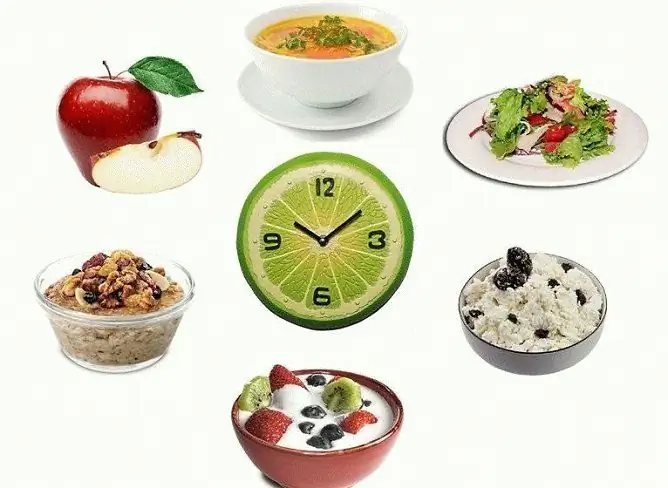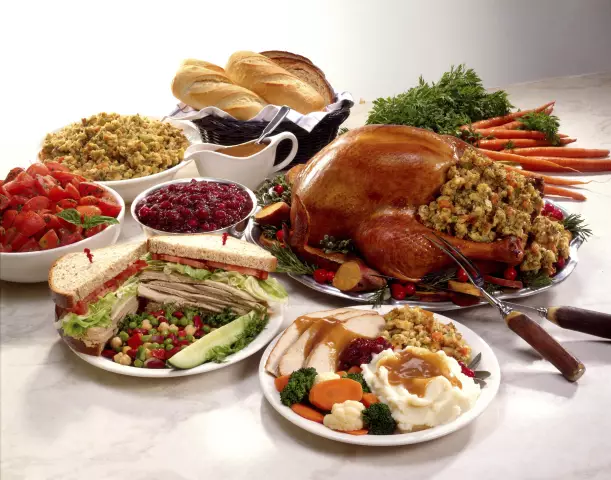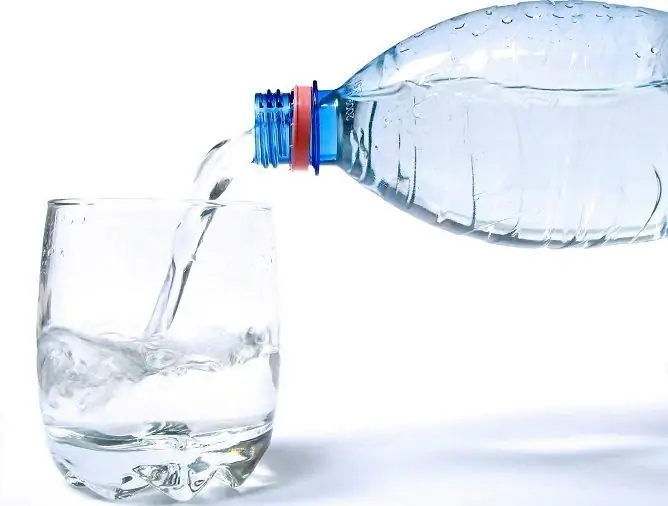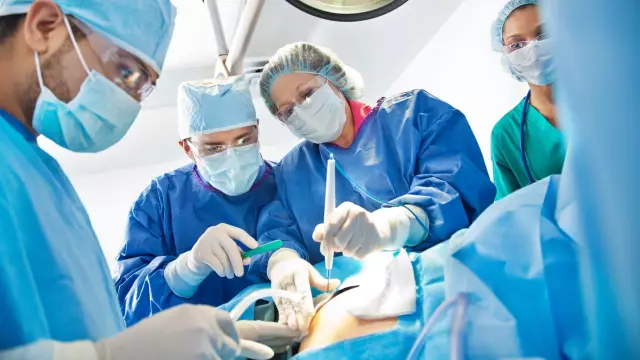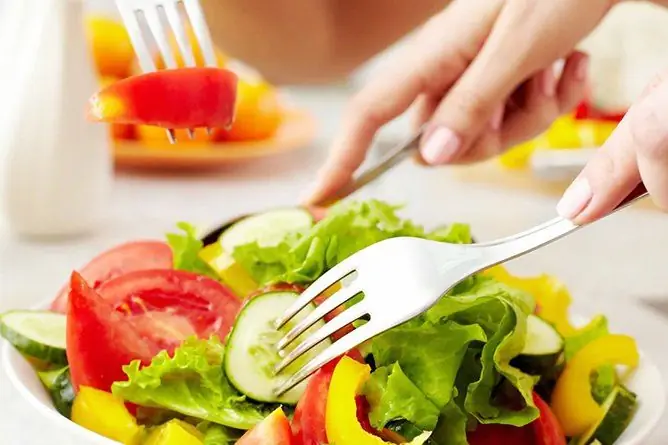- Author Rachel Wainwright wainwright@abchealthonline.com.
- Public 2023-12-15 07:39.
- Last modified 2025-11-02 20:14.
What can you eat for hemorrhoids: diet as part of treatment
The content of the article:
- What not to eat with hemorrhoids
- Principles of nutrition for hemorrhoids
- What can you eat with hemorrhoids?
- Diet for hemorrhoids with bleeding
- Video
What can be eaten with hemorrhoids is far from an idle question, since the effective disposal of the patient from the disease depends not only on the correct treatment, but also on the lifestyle. One of the conditions, without which full recovery is impossible, is diet for hemorrhoids. Nutrition for hemorrhoids should be balanced, containing all the substances necessary for the body, and at the same time contribute to the smooth functioning of the gastrointestinal tract.

With hemorrhoids, it is important that the diet is not only balanced, but also regular, in compliance with the food intake
The menu excludes products that have a detrimental effect on the gastrointestinal tract and cardiovascular system. The diet is based on the principle of gentle nutrition and alternation of products.
What not to eat with hemorrhoids
Nutrition for hemorrhoids is aimed at preventing constipation, the presence of which adversely affects the mucous membrane and crypts (deep folds) of the rectum, causing scratches of the mucous membrane (the main cause of bleeding and thrombosis of hemorrhoids) and anal fissures. For these reasons, the use of the following products is excluded:
- confectionery, baked goods, chocolate;
- sweet carbonated drinks;
- white flour products (white bread, pasta);
- rice, semolina porridge;
- products with an abundance of spices - marinades, canned meat products, smoked products, spicy foods;
- fatty and fried foods;
- whole milk, hard cheese;
- beer, wine and any other alcohol - ethanol reduces blood viscosity, which significantly increases the risk of bleeding;
- coffee - the drink increases blood pressure, promotes the progression of venous stasis. For the same reason, you cannot drink chicory, which has a similar effect on blood vessels.
You should eat less foods that contain coarse fiber and can cause flatulence - this includes cabbage, radishes, radishes, and legumes. There is no need to completely remove them from the diet, but they can be consumed only from time to time and at the same time monitor the body's reaction. If they cause discomfort, increased symptoms of hemorrhoids, then it is advisable to refuse them.
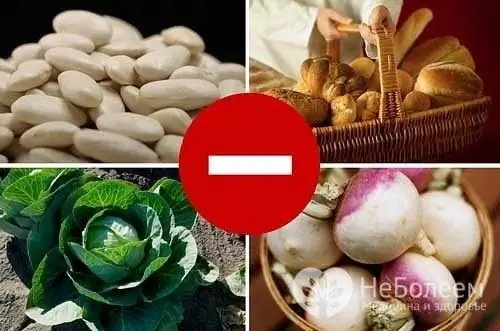
With hemorrhoids, foods that irritate the digestive tract, and also help to strengthen the stool are prohibited
Principles of nutrition for hemorrhoids
You should take time to develop a menu for hemorrhoids and, if possible, consult a dietitian.
An integrated approach to the preparation of a daily diet should be based on the following rules:
- The calorie content of the diet should not decrease after its revision (unless the diet aims to reduce the patient's body weight), and all missing nutrients should be replenished or replaced with analogues. White bread is replaced by gray, sweets are replaced by natural honey, fruits, etc.
- Abundance of water. The patient should consume more than three liters of fluid a day (this includes any fluid, including that contained in food and drinks), this significantly reduces the likelihood of constipation, shortens the time for straining, and facilitates bowel movements.
- Fiber is necessary, but you should not switch to a completely plant-based diet. Too much plant fiber contributes to loose stools, bloating, and diarrhea. When consumed in moderation, fiber contributes to the formation of feces of the correct consistency, their movement along the digestive tube.
- Adhere to fractional nutrition and food intake. Food should be taken at the same time every day to keep the gastrointestinal tract functioning as efficiently as possible. In order to avoid unnecessary strain on the intestines, you need to consume food in small portions, but often. It also helps to relieve the constant hunger associated with the first weeks of a new diet.
What can you eat with hemorrhoids?
A separate list includes those foods that a hemorrhoid patient can safely take:
- vegetables - most vegetables are well digestible, have a high nutritional value, promote digestion, and are easily disposed of. In the daily diet, vegetables should be present both fresh (you can in the form of salads) and thermally processed (vegetable soups, mashed potatoes, casseroles, stewed vegetables, etc.);
- Fruit is an easily digestible food with a high energy value. Too sweet fruits are best consumed less often, but neutral and sour foods will perfectly dilute the daily menu. Recommended for consumption are dried fruits - prunes, dried apricots, raisins, since they help prevent constipation;
- fermented milk products - abuse of them can lead to bloating and diarrhea, but when used correctly, yogurt and kefir enriched with lactobacilli and bifidobacteria have an excellent effect on digestion, absorption in the large intestine, and its peristalsis. The microflora of the large intestine, which fermented milk products maintain in a healthy state, is important for counteracting the pathogenic flora from the outside - one of the main causes of inflammatory processes in hemorrhoids;
- low-fat meats and fish - after proper heat treatment (boiling, stewing, baking or grilling), natural meat products should be present in the daily diet as a source of essential trace elements and amino acids;
- cereals - buckwheat and pearl barley are especially useful, which have a cleansing effect on the intestines, are rich in microelements and are not loaded with excessive amounts of carbohydrates;
- vegetable oils - sunflower, olive, pumpkin, corn, linseed oil has an enveloping, lubricating effect. The oil facilitates the passage of feces through the intestines, promotes the absorption of fat-soluble vitamins from food, and contains a large amount of trace elements.
When cooking, you should not add spices to dishes, and it is also desirable to reduce the amount of salt, since these products affect blood pressure, liver and blood vessels. Spices, especially pungent ones, can irritate the lining of the digestive tract.
Proper nutrition includes maintaining the proportions of consumption of fats, proteins and carbohydrates as 1: 1: 4. With hemorrhoids, you can eat something that does not lead to stool upset, does not irritate the intestines, does not affect the blood system.
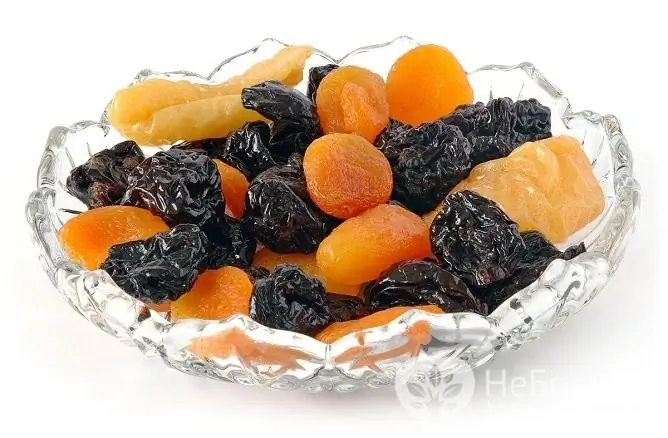
Dried fruits contribute to regular bowel movements, therefore it is recommended to include them in the diet for hemorrhoids
Diet for hemorrhoids with bleeding
Failure to comply with recommendations for correcting lifestyle, ineffective treatment or under the influence of other provoking factors develops an exacerbation - pain, itching, discomfort and heaviness in the pelvic region, blood on underwear or the toilet, especially after a bowel movement.
Acute hemorrhoids and exacerbation of chronic hemorrhoids require immediate referral to a proctologist and medical treatment aimed at stopping bleeding and relieving pain. In addition, dietary adjustments are required to minimize risks and harm to the body, as well as reduce the risk of relapse in the future.
The opinion is erroneous that at first after an exacerbation it is necessary to completely refuse food. The food that will be consumed during the exacerbation should be neutral, easy to digest, and also have some therapeutic properties. The following foods and dishes are recommended:
- liquid cereals, in which it is permissible to add a spoonful of vegetable oil. For rectal bleeding, they should form the basis of the diet;
- egg white - replenishes the body's needs for protein in the temporary absence of meat products in the diet, which are not recommended during the period of exacerbation and the appearance of bleeding:
- boiled fish;
- dairy products.
It is strictly forbidden to eat spices, fatty, fried, smoked food, marinades, meat products (an exception may be steamed dishes from low-fat minced meat).
As the disease progresses, the same principles should be followed. What kind of food is recommended depends on the severity of hemorrhoids: at 2 degrees, meat broths, animal fats, and confectionery are excluded from the diet. Grade 3 requires a switch to boiled vegetables, light mono-component soups without fat. A strict diet should be followed for another six months after a course of hemorrhoid therapy, and after this period, under the supervision of a doctor, introduce new products into the diet, expanding the menu. In general, people who are prone to hemorrhoids should be adhered to the diet constantly in order to avoid relapse of the disease.
Video
We offer for viewing a video on the topic of the article.

Nikita Gaidukov About the author
Education: 4th year student of the Faculty of Medicine No. 1, specializing in General Medicine, Vinnitsa National Medical University. N. I. Pirogov.
Work experience: Nurse of the cardiology department of the Tyachiv Regional Hospital No. 1, geneticist / molecular biologist in the Polymerase Chain Reaction Laboratory at VNMU named after N. I. Pirogov.
Found a mistake in the text? Select it and press Ctrl + Enter.

